SUMMARY
This is AI generated summarization, which may have errors. For context, always refer to the full article.
![[OPINION] Expectations for Philippines-US-Japan trilateral cooperation: A view from Japan](https://www.rappler.com/tachyon/2024/04/tl-ph-usa-jp-cooperation.jpg)
The first Philippines-United States-Japan trilateral summit will be held this week in Washington DC. Prior to that, the vice foreign ministers of the three countries met in Tokyo in March. In 2023, the heads of the national security councils and foreign ministers also held the triad meetings. Three factors encouraged such moves.
First, over the past two years, the importance of multilateral meetings in the Indo-Pacific region has been recognized. Minilateral is between multilateral (such as the United Nations and ASEAN) and bilateral. It refers to a framework for dialogue and cooperation among three or more countries that share common issues and interests. The US-Japan-Australia-India “QUAD” is also a type of minilateral.
Unlike alliances, which impose mutual defense obligations based on international treaties, minilateral meetings are essentially dialogues and frameworks for cooperation. For example, QUAD holds regular summits and high-level dialogues and has cooperated on concrete issues, such as vaccine supply and disaster relief. As think tank scholars from the four countries discuss, “ambiguity and informality allow the group to align and move forward in areas where there are conflicting interests.”
Although ASEAN member states are very concerned about being divided over the extent of their support for the United States and China, there is generally little resistance to minilateral meetings. Good examples of these are the dialogue between the Philippines and Vietnam, which has progressed rapidly in recent years, and the trilateral maritime security cooperation between the Philippines, Malaysia, and Indonesia, which has been in place for some time.
In recent years, India, which has advocated an Indo-Pacific strategy, has intensified individual dialogues with ASEAN countries, including the Philippines. Another example of a minilateral dialogue was the international conference on triangular cooperation between the Philippines, Japan, and India held in Manila in March by the Japan Foundation and the Philippine think tank Stratbase ADR Institute for Strategic and International Studies (ADRi). Such efforts are expected to increase in the future.
Second, the Philippines wants to diversify its economic and security partners. Citizens in the Philippines have already become aware, through video footage, of the threatening behavior of official Chinese vessels that occurs every two weeks during replenishment operations at Ayugin (Second Thomas) Shoal. Public perception of China has changed significantly over the past two years.
The Philippines’ current strategy is to deter threats from China. President Ferdinand Marcos Jr. continues to hold dialogues with the leaders of Australia, Japan, India, Germany, and the United Kingdom to find common ground on how to maintain a rules-based order in the West Philippine Sea, and how to enhance the maritime capabilities of the Philippine Coast Guard and Navy. Such a pluralistic approach to diplomacy is generally supported by both the country’s political elites and ordinary citizens.
Third, it is very important to hold the first summit for institutionalization at this time. The three leaders should make a joint statement to ensure that cooperation will continue after the US presidential election in November 2024.
All may learn from the good practice that was the US-Japan-Republic of Korea summit held at Camp David in the United States in August 2023. Three leaders agreed not only to hold annual summits, but also to hold regular military exercises, establish a crisis hotline, and hold meetings of ministers and national security chiefs. An institutionalized mechanism has been set up to allow the dialogue to continue at the working level even if foreign policy changes significantly due to changes in the US or South Korean administrations.
Given the fluidity of US and Philippine administrations and the wide swings in foreign policy over the past decade, the timing of this trilateral summit, six months before the US presidential election, is significant.
Equal partnership
Leaders from the Philippines, the US, and Japan will widely discuss future economic and security cooperation, including supply chain resilience, renewable energy, digitalization, and human security.
Even in Japan, there is concern that the United States will focus on hard security topics, instigating the Taiwan Strait contingency and forcing the Philippines and Japan to make a tough decision. But do not worry. Contrary to popular belief, the dialogue among the Philippines, the US, and Japan is based on an extremely equal relationship.
In fact, this trilateral summit had been in the works for two and a half years. In September 2022, just three months after the Marcos administration took office, the Center for Strategic and International Studies (CSIS) conducted a track-two (non-government) policy dialogue in Tokyo. A similar dialogue was held in Manila in September 2023. This author participated in both. Non-government stakeholders – including think tank researchers, university faculty, military veterans, and former foreign ministry officials – from the three countries freely shared their views.
The first meeting was held shortly after then-US House Speaker Nancy Pelosi’s visit to Taiwan, during which Filipino experts informally shared their deep concern that the US side was the one escalating tensions in the region. While minilateral cooperation in the West Philippine Sea was welcomed, there was also a strong feeling that the Philippines should stay out of the Taiwan issue. The Marcos administration never once mentioned the US-Philippine Enhanced Defense Cooperation Agreement (EDCA) in connection with the Taiwan contingency, and the President has stated that both the EDCA and US-Philippine cooperation are solely for the purpose of improving capabilities in the West Philippine Sea.
Over the past two years, both the US government and think tanks like CSIS have learned from the statements of Philippine experts and flexibly adjusted their approach. In the latest CSIS policy recommendations, titled “Sustaining the U.S.-Philippines-Japan Triad,” released in mid-February this year, the description of Taiwan has been significantly more cautious. The areas of cooperation are mainly limited to information sharing, evacuation of residents, countering disinformation, among others. Limited. It also states, “The United States would likely request access to the EDCA sites for the pre-positioning of equipment, though which types and whether they would be accompanied by large numbers of US troops would be highly politically sensitive in Manila.”
So, there is no cause for alarm. The United States is fully aware of the Philippines’ intentions and concerns. The summit statement will not contain any commitments to trilateral cooperation on the Taiwan issue or any new language that would particularly irritate China.
Unofficial dialogue on a Taiwan contingency
Within the Philippine government, the response to the Taiwan emergency remains a highly sensitive issue. However, at the unofficial level, there is likely to be an exchange of views between Japan and the United States, and between the United States and the Philippines (in an undocumented form), with the Taiwan emergency in mind, and private think tanks are the main actors. Policy simulations are also being conducted. In particular, ensuring the security of the nearly 200,000 Filipinos living in Taiwan and the Indonesian population, which is said to exceed that number, is being recognized as an important issue for Southeast Asia as well.
Japan has practical experience in non-combatant evacuation (NEO) operations to rescue Japanese nationals from Afghanistan (in 2021) and Israel (in 2023) using the aircraft of the Japan Self-Defense Forces. Both the Ministry of Foreign Affairs and the Ministry of Defense work closely together to establish guidelines and continue joint field exercises every year, including the multinational joint exercise Cobra Gold in Thailand.
Therefore, as far as Taiwan is concerned, it is currently in the interest of all three countries to continue the high-level government dialogue without explicitly specifying the content of the discussion and to keep all options open. Meanwhile, a free exchange of views through policy simulations and tabletop exercises led by private think tanks and information sharing by inviting nongovernmental scholars and veterans from Taiwan, who are the relevant parties, should also be carried out in parallel. Japan and the Philippines can play an important role in enhancing this trilateral or “minitrilateral-plus” cooperation framework. – Rappler.com
Saya Kiba is an associate professor at Kobe City University of Foreign Studies. She is a member of the Expert Panel on Ministry of Defense Capacity Building, Japan. Her major fields of interest are Philippine Studies, Southeast Asian Studies, civil-military relations, security sector governance, and security cooperation. E-mail: kiba@inst.kobe-cufs.ac.jp.
1 comment
How does this make you feel?

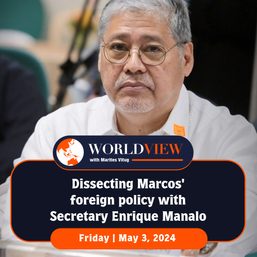
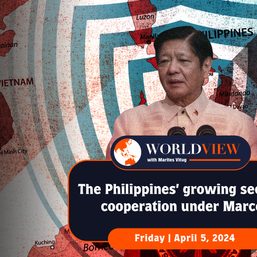
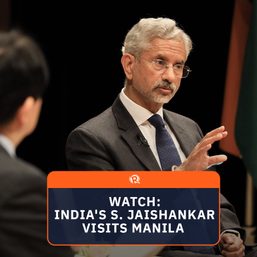


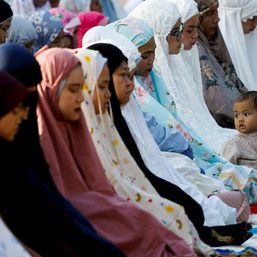













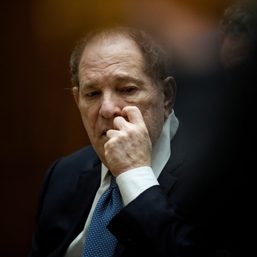

![[Just Saying] SONA 2024: Some disturbing points](https://www.rappler.com/tachyon/2024/07/TL-marcos-sona-points-july-23-2024.jpg?resize=257%2C257&crop=335px%2C0px%2C720px%2C720px)


Noted: “The summit statement will not contain any commitments to trilateral cooperation on the Taiwan issue or any new language that would particularly irritate China.” Why is Taiwan not given due weight in terms of its relevance to Democracy? Is this the same treatment that the Republic of China under then-President Chiang Kai-Shek received from its allies? If this is true, then China will always continue bullying the Philippines.